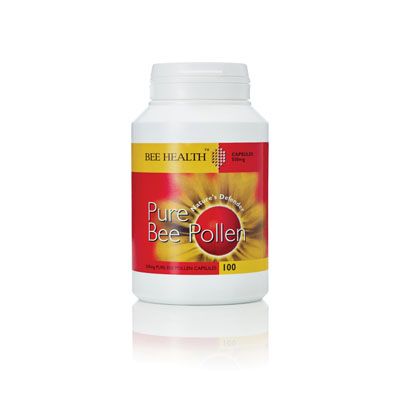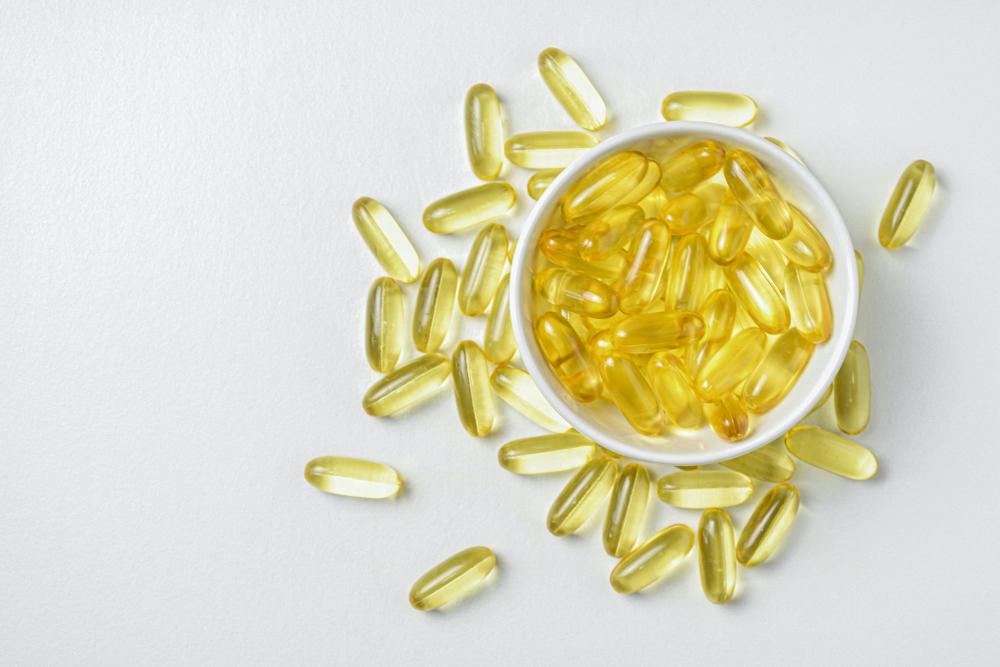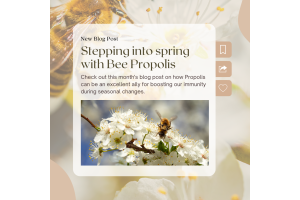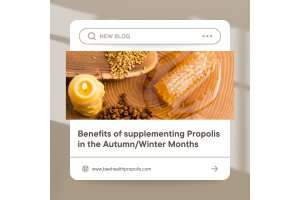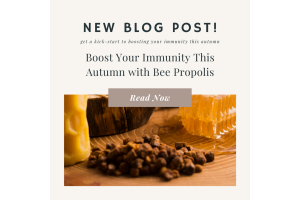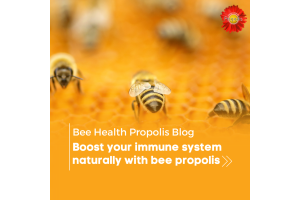Bee Pollen Supplements: Nature's Secret Weapon for Spring Allergies
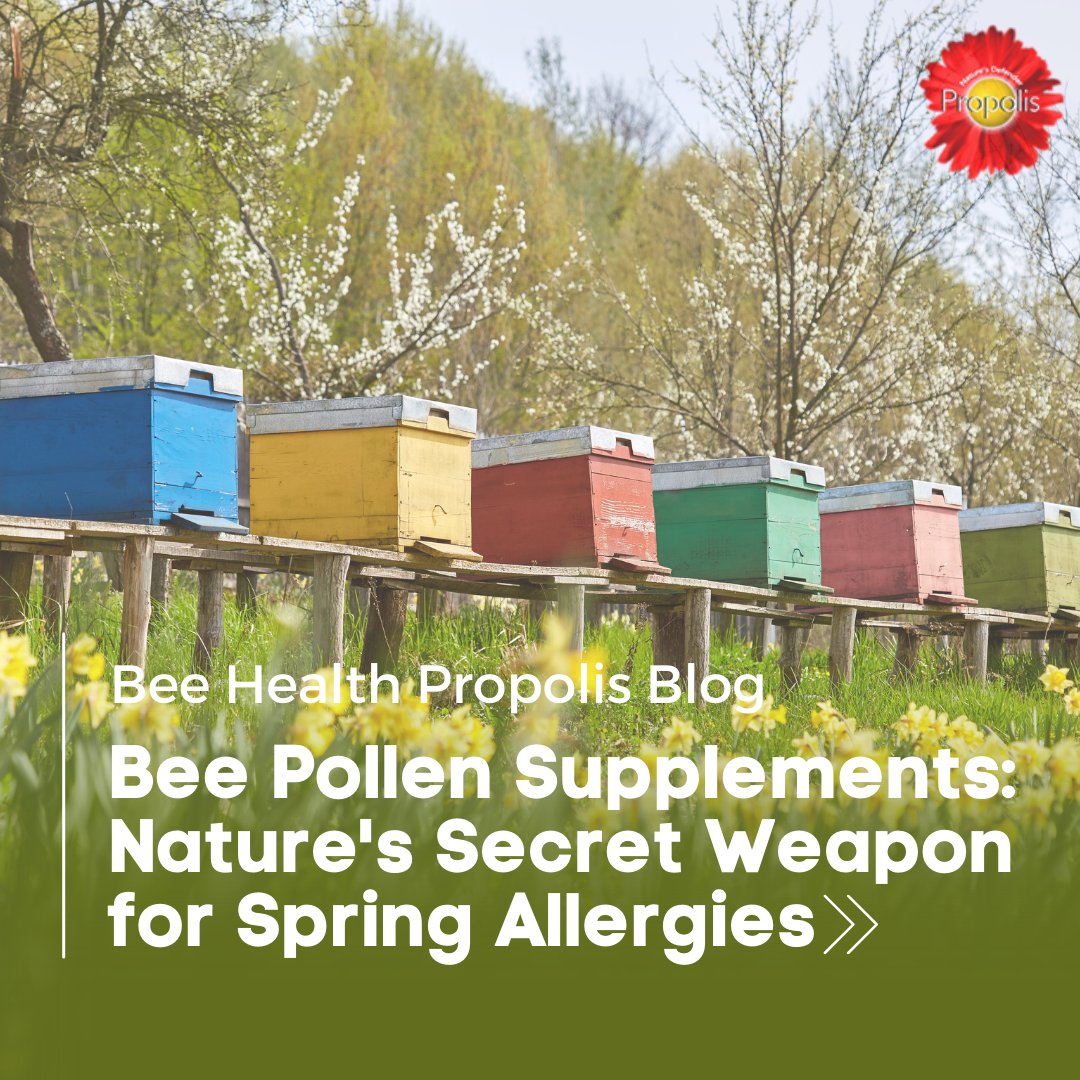
As spring beckons us outdoors with sunshine and colourful blooms, pollen allergies rear their sniffly heads for many. But the industrious honeybee may have created a solution for us between their pollen baskets - meet bee pollen.
These tiny golden granules packed with nutrients might help strengthen our body's defences against the inflammation of hay fever. The same properties nourishing young bees may also bolster our immune resilience this season.
Bee Propolis
Spring often carries a sting in its pollen-laden breezes - seasonal allergy irritation! Before we resign ourselves to a box of tissues as our outdoor companion, let's also consider a sticky substance from honeybees called propolis. Bees use this antimicrobial sealant to fortify their hives against invaders that might threaten the colony's health and unity.
Early research suggests propolis extracts offer similar protective powers to bee pollen by reducing inflammation that causes runny noses and itchy eyes.
How Could Bee Pollen Help with Allergies?
Ingesting small doses of bee pollen may help reduce allergy symptoms because it contains tiny amounts of the same compounds that trigger uncomfortable sneezing and itchy eyes in allergy sufferers. Regularly consuming these pollen particles works like a natural vaccine - the body learns not to overreact to the allergens in the spring air.
Doctors call this progressive desensitisation to allergens through ingestion oral immunotherapy. Research indicates that taking bee pollen supplements can substantially lessen seasonal allergy issues like runny noses and the need for antihistamines for some people prone to pollen reactions.
The key is repeatedly being exposed to teeny doses of the pollen compounds to teach the immune system not to freak out much when the nose and eyes meet those allergens floating outside. While counterintuitive, swallowing bee pollen can shorten allergy symptoms over the long term.
The Anti-Inflammatory and Antioxidant Edge
Beyond the oral immunotherapy effect, bee pollen also packs anti-inflammatory bioflavonoids that can calm allergy-related nasal swelling and sinus congestion. Compounds like quercetin and kaempferol in bee pollen impede histamine release from immune cells. Other players like plant phenols and vitamin E mop up the cell-damaging free radicals that promote inflammation.
Taking bee pollen daily before and during allergy season might offer substantial relief without the unwanted side effects of antihistamines.
What Does the Science Say?
Studies tell us that bee pollen packs a nutritional punch with proteins, amino acids, fats, vitamins, minerals, and plant compounds that strengthen health. Studies reveal it can stabilise blood sugar, boost sexual function, revitalise the liver, build bone, sharpen focus, and rally immunity.
Additionally, bee pollen boasts anti-inflammatory attributes. Its antioxidant effects combat disease. Research confirms its anti-allergy abilities. Multiple lab and animal trials validate bee pollen's power to tackle obesity, diabetes, imbalanced cholesterol, and heart problems - all related to metabolic disease.
Choosing a Quality Bee Pollen Supplement
Ensure Purity Standards
Reputable supplement brands rigorously test for contaminants like chemicals or microbes. Independent verification by organisations like NSF International confirms safety standards during harvesting and processing.
Mix Up Plant Sources
The broader the botanical diversity, the better, as different plants emit pollen at varying times throughout spring. Multi-floral pollen mixes expose you to the most complete allergy antigen profile.
Add Other Bee Products
Some beekeepers boost bee pollen's anti-allergy power by mixing it with small amounts of raw honey, propolis resin or royal jelly for a beneficial powerhouse. If these additional bee products and pure pollen are listed on the label, that's a good sign.
How to Take Bee Pollen
The easiest way to take bee pollen is capsules, which are pre-dosed and perfect before breakfast or lunch. One a day will do it.
Take one capsule before breakfast or lunch. Swallow it whole with water—don't chew it. The pollen beads need to reach your intestines intact. Start with just one capsule for the first week to check for allergic reactions. If you tolerate it well, you can increase it to two capsules daily, one before breakfast and lunch.
You can take the capsules with or without food. Just be sure to buy high-quality bee pollen from reputable suppliers, store it properly to preserve nutrients, and follow the dosage on the bottle. Check for side effects and discontinue use if any occur.
Give Bee Pollen a Try for Allergy Relief
For those who annually dread the sniffling and sneezing of allergy season, products like our 500mg bee pollen and propolis may offer natural relief – though the science is still out. As busy pollinators, bees harvest the concentrated essence of local blooms. Some people find taking a daily spoonful of this bee pollen helps quiet bothersome symptoms come springtime by gradually desensitising their immune systems.
The sticky, antimicrobial substance propolis, gathered by bees from tree buds, may also help build tolerance. However, researchers haven't agreed on how effective these bee goods are for different allergy sufferers. While many happily hail honeybees for banishing their sneezes, relief isn't guaranteed, but it's worth a go.

